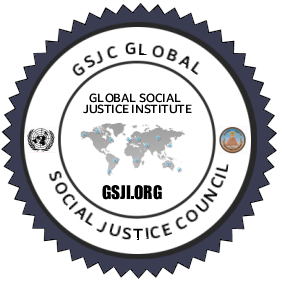GLOBAL SOCIAL JUSTICE INSTITUTE
f. The private sector core values in the areas of human rights, labour standards and environmental practices. The Secretary-General
has asked the relevant United Nations agen- cies to be ready to assist the private sector in incorporating those
values and principles into mission statements and corporate practice. Each agency has the important task of
examining the various ways of responding to corporate concerns for human rights.
| ||
Virus Justice Italian Freedom Day J23 History of Racism Book-HR Join Commission Ethics Badges Site Map Education Policy Agenda Top Social Justice Issues Anti Slavery Book Truth and Justice Commission USA Ethnic Justice Truth and Justice Commission * Anti Slavery Society - Election Intrigrity George Mentz Colorado Springs Coronavirus Biden Fault Negligence |
Accreditation Bodies: www.GAFM.com * www.GAFM.org * www.CertifiedProjectManager.eu * www.AAFM.org * Certified Project Manager * Certified e-Commerce Consultant * Royal Law Society * Royal Business Society * Royal Business College * Royal Fellows * Royal Economics Academy * Oxford Law School * AAFM * Certified International Project Manager *

